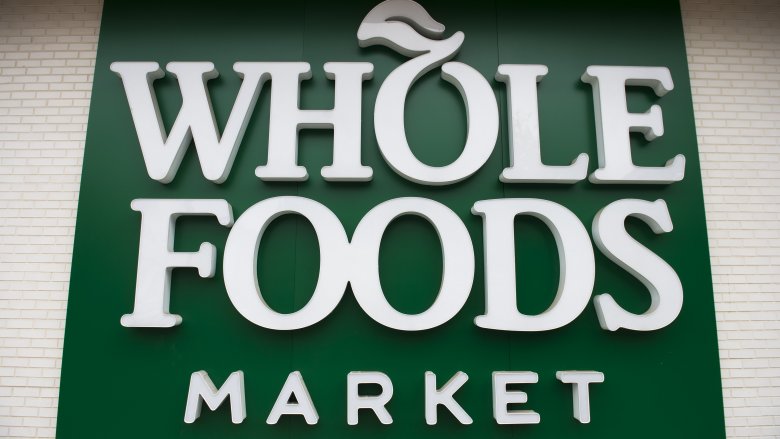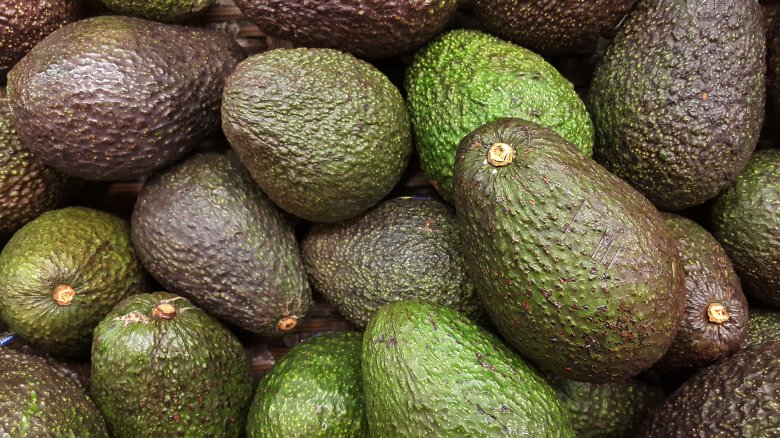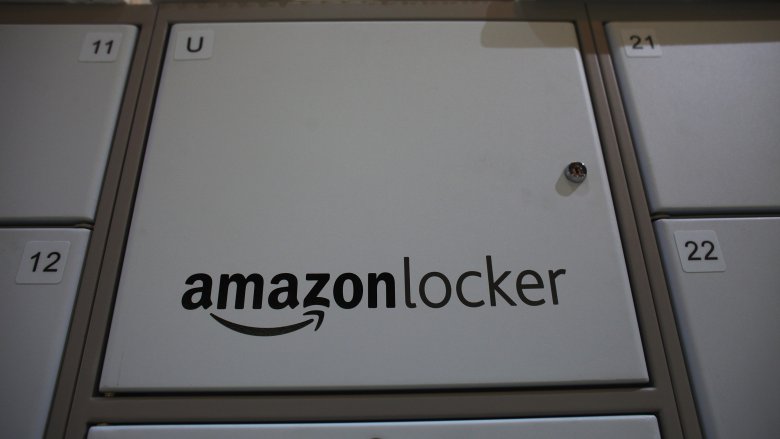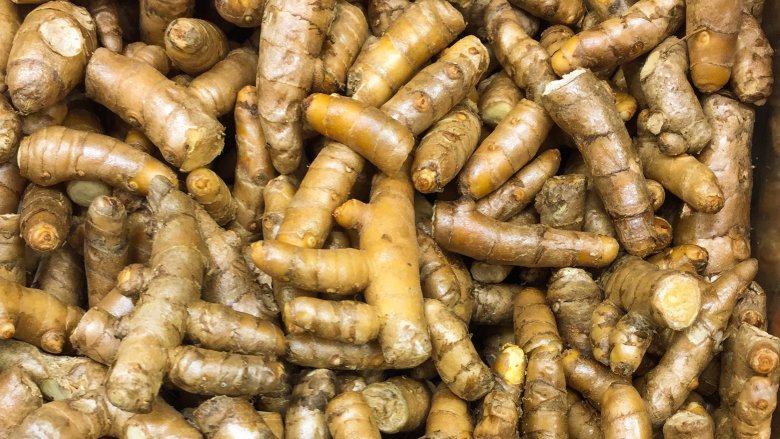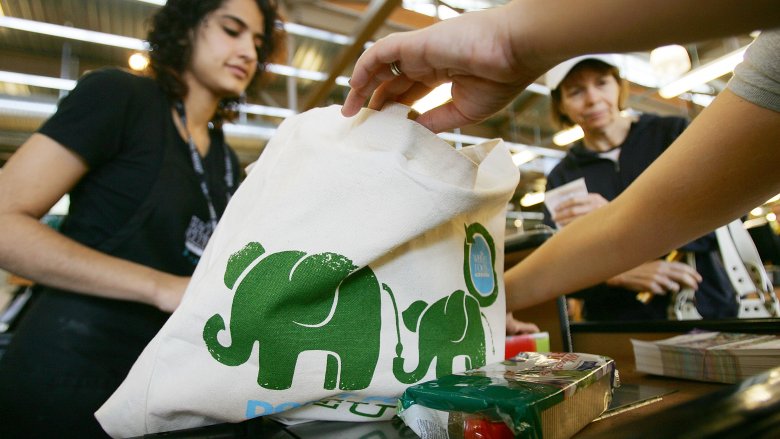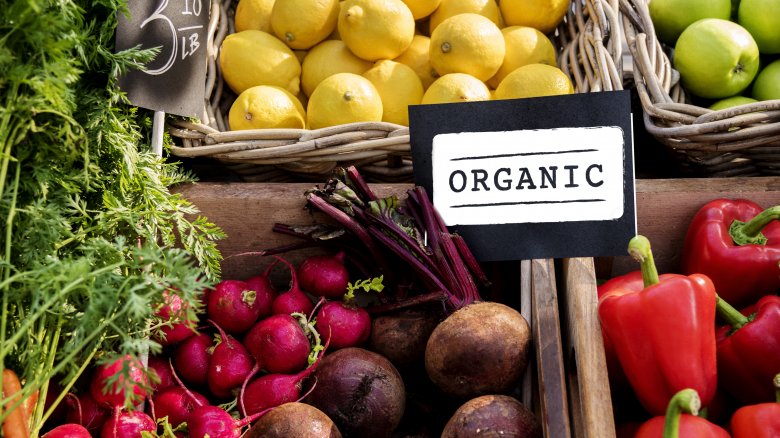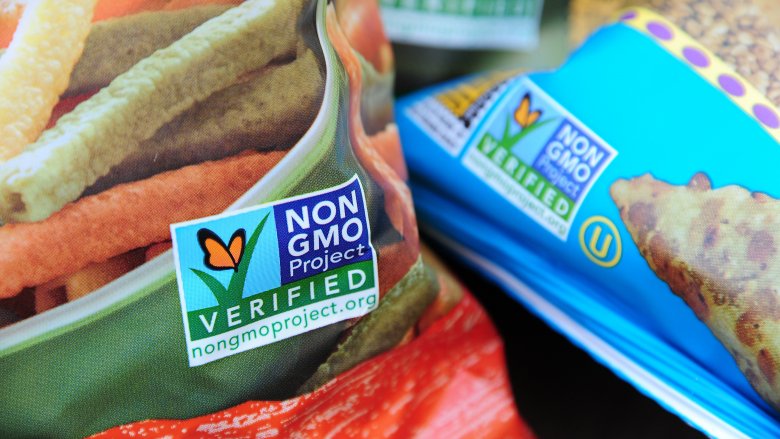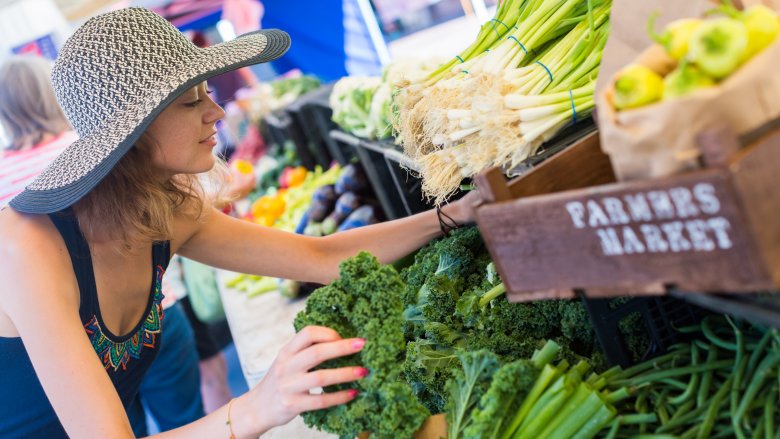Why You Need To Start Shopping At Whole Foods
In case you haven't already heard, America's biggest online store bought America's healthiest grocery store. That's right, Amazon is now the proud owner of Whole Foods Market. And with that, comes changes that aim to make this once niche grocery chain much more accessible to the general public. Though some may be a bit dubious of compromises made, you can't deny the obvious benefits of getting more Americans to open their eyes to a healthier, whole-r, way to shop. As a long-time dedicated Whole Foods shopper, I am excited to take advantage of the benefits, and happy to share my "happy place" with all the Whole Foodie newcomers.
Here are all the reasons you need to start shopping at Whole Foods Market.
The new low prices
We all know Whole Foods' reputation for being "Whole Paycheck," but it looks like Jeff Bezos is out to change that impression — or at the very least, soften the blow. Jeff Wilke, chief executive of Amazon Worldwide Consumer, said in a statement reported by The Washington Post, "Everybody should be able to eat Whole Foods Market quality — we will lower prices without compromising Whole Foods Market's long-held commitment to the highest standards."
As of Monday, August 28, 2017, the markdowns took effect. You can now expect to get your salmon, avocados, baby kale, almond butter, bananas, eggs, ground beef, rotisserie chicken, butter, and apples at a cheaper cost. For example, in Chicago, where each organic avocado used to be $2.50, the new price will be $1.99 each. And those organic rotisserie chickens we all love on days we don't want to cook? Once $14.00, now $9.99. Feel like chicken tonight, like chicken tonight?
Prime members get double the benefits
If you're already an Amazon Prime member (it's estimated that half of American households are), then you could be getting even more than free two-day shipping very soon. Amazon Prime is set to replace Whole Foods' current loyalty program to give members a special discount on products throughout the store.
Though the details of the exact types of savings are limited, we do know that Whole Foods' private label products will be available through Prime Pantry and Prime Now meaning that you can order those discounted organic bananas to be sent right to your door within two hours. Peanut butter and banana sandwich anyone?
Amazon lockers
If you're already a loyal Amazon customer — or better yet, an Amazon Prime member — things just got a whole lot more convenient for you.
Select Whole Foods stores will now have Amazon Lockers. This means when you order that book that you're dying to read, you can just go pick it up on your next grocery shopping trip. Even better, when you want to get your money back for those pajama pants that look nothing like they did online, you can also drop off returns at your local Whole Foods. No more losing money on things you should've returned months ago. Cha-ching!
You'll shop with a drink in your hand
If you're new to the Whole Foods experience, I strongly encourage you to check out the amenities as you get better acquainted. Most Whole Foods stores have a variety of beverage options — from juice bars with all the superfood fixings you can handle, to wine bars staffed by well-versed winos, to beer taps with rotating seasonal selections. And the best part is, you are allowed — no, encouraged — to indulge in one while you shop.
You can easily turn a stressful Saturday into an enjoyable experience by getting a glass of wine to go, and carrying it with you as you leisurely stroll the aisles. Suddenly, the international aisle just got a whole lot more interesting. And those cheese samples? You're all over them.
You'll discover produce you never knew existed
Have you ever read a recipe that called for some obscure spice or vegetable that you have never heard of or seen in your life? Well, your local superstore may not carry it, but there's a good chance that Whole Foods will.
Even better, if you sign up for the Whole Foods newsletter, you'll get recipe ideas based on what's on sale or in season that week in your store. You may have heard all the benefits of turmeric, but have you ever tried cooking with the root itself? Look no further than the produce aisle, typically located next to the peppers and herbs. And while you're there, maybe pick up a bright Barbie-pink jackfruit or a brown bag-full of Hen of the Woods mushrooms (delicious sautéed with butter and mixed in with eggs).
Get to know local biz owners
One of the core values of Whole Foods is that they support local businesses. When you go to a store in Austin, you're going to get a different selection of brands than you will in Ohio. The way that they promote these products is by having their vendors come to the store for sampling. However, unlike your typical grocery store where the representative is hired help, it is not unusual for Whole Foods to bring in the business owner themselves.
In my Chicago store, I have met everybody from Allison Bower, the founder of Ruth & Phil's Gourmet Ice Cream, to Tessamae's sons, creators behind the first totally unprocessed factory-oil-free dressings and sauces.
And yes, after chatting with them about how they started their business from nothing, and are ecstatic to see it make it to a big chain like Whole Foods Market, it's difficult not to pick up their carton of hummus or bag of homemade granola. In my opinion, supporting local business is always worth it.
You'll give back every time you shop
Whole Foods has a charity program called One Dime at a Time (ODAAT) that incentivizes shoppers to bring their own reusable bag. When you do, you either receive 10 cents back for every bag you bring, or can choose to donate the returns to a selected charity organization. Said organization changes every quarter, and can differ from store to store, and city to city.
In light of recent events, my local store is actually giving their customers the option between their originally intended charity and the Hurricane Harvey victims in Texas. And yes, if you want to donate more than your bag credits, you are more than welcome.
You'll find new indulgences
Have you ever tried a new product because it was on sale or because you were treating yourself, intending for it to be a one-time purchase, but then you liked it so much it became a regular occurrence? Consider this your warning: Whole Foods is one big temptation playground. Here's just a sampling of products that once you try them, you'll wonder how you ever lived without them.
If you're searching for nut butter, look no further than Artisana Organic Raw Vegan Cashew Butter: the most indulgent creamy, nutty spread you've ever put on a spoon. Or an apple. Heck, your finger. Looking for chocolate? The Lake Champlain Organic Dark Spicy Aztec Chocolate Bar is spicy, smoky, and smooth. It tastes like you're discovering chocolate for the first time.
If you've ever tried to make a plantain chip yourself, you know it's impossible to keep them crispy after a few hours. But these Terra Plantain Chips stay crispy, taste delicious, and are made with coconut oil so you can feel a bit better about eating the whole bag. Kind of. And then there's Jeni's Ice Cream. At $9.99 a pint, you think there's no way you'll ever spend that money on ice cream. And then you buy it while it's on sale, fall madly in love with it, and find yourself stalking the ice cream aisle to see when it will go on sale again.
You'll justify why you need to spend more for your health
Whole Foods is known for its abundance of organic produce that greets you with bright colors and good smells as soon as you walk through the sliding doors. But we have all questioned whether organic is truly better for us, or if it's just a scam to get us to spend more money on produce.
Well, here's a quick refresher on the difference between organic and non-organic produce. According to the Mayo Clinic, a certified organic farmer uses enhanced soil and water, promotes a self-sustaining cycle of resources on the farm, and restricts genetic engineering, synthetic hormones, and the use of sewage sludge as a fertilizer. Still not convinced?
A 2014 study led by Newcastle University in England and published in the British Journal of Nutrition found that the levels of antioxidants were 18-69 percent higher in organic food than non-organic food. This antioxidant upgrade is equivalent to eating between one to two extra servings of fruit and vegetables a day. That's more bang for your produce buck.
Totally transparent shopping
If you're the kind of person that finds it very important to know exactly what goes into the food you're eating, then Whole Foods will become your brutally honest best friend. Whole Foods is the first national grocery chain to commit to total GMO transparency. Which means by 2018, every single product in their store will be labeled to let you know if it is or is not GMO-free, with the goal being to supply as many non-GMO products as possible.
On top of that, they are also very picky about the types of products they carry on their shelves. Artificial preservatives, flavors, and sweeteners are on their "no" list, along with a heaping handful of other "unacceptable ingredients."
A healthier America
I'll admit Whole Foods is not for everyone. Even with the Amazon takeover, it will still likely be more expensive than your average grocery store. But I've always been the type to spend money on food before I spend it on a new purse or a pedicure. To me, good, whole, unprocessed food is the ultimate indulgence.
As a country we can definitely benefit from putting our health first more often. So if it takes Amazon for Americans to eat a little more kale, and be a little more food conscious, then I'm all for it. If you agree, I'll see you in the ice cream aisle looking for a sale on the Jeni's Dark Chocolate ice cream.
